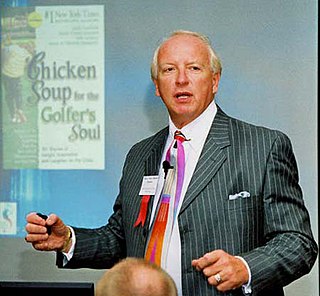A Quote by John Roos
A successful entrepreneur can't be afraid of failures or setbacks. An initial setback can be a great opportunity to take a new and more promising approach to any problem, to come back stronger than ever.
Related Quotes
Part of abandoning the all-or-nothing mentality is allowing yourself room for setbacks. We are bound to have lapses on the road to health and wellness, but it is critical that we learn how to handle small failures positively so that we can minimize their long-term destructive effects. One setback is one setback—it is not the end of the world, nor is it the end of your journey toward a better you.
The knowledge that you have emerged wiser and stronger from setbacks means that you are, ever after, secure in your ability to survive. You will never truly know yourself, or the strength of your relationships, until both have been tested by adversity. Such knowledge is a true gift, for all that it is painfully won, and it has been worth more than any qualification I ever earned.
I have insecurities. But whatever I'm insecure about, I don't dissect it, but I'll go after it and say, "What am I afraid of?" I bet the average successful person can tell you they've failed so much more than they've had success. I've had far more failures than I've had successes. With every commercial I've gotten, there were 200 I didn't get. You have to go after what you're afraid of.
Don't wait until everything is just right. It will never be perfect. There will always be challenges, obstacles and less than perfect conditions. So what. Get started now. With each step you take, you will grow stronger and stronger, more and more skilled, more and more self-confident and more and more successful.
Take your duty, and be strong in it, as God will make you strong. The harder it is, the stronger in fact you will be. Understand, also, that the great question here is, not what you will get, but what you will become. The greatest wealth you can ever get will be in yourself. Take your burdens and troubles and losses and wrongs, if come they must and will, as your opportunity, knowing that God has girded you for greater things than these.
"Why is the creative entrepreneur the riskiest type to be?" I asked. "Because being creative means you are often a pioneer. It is easy to copy a successful and proven product. It is also less risky. If you learn to innovate, create, or invent your way to success, you are an entrepreneur creating new value rather than an entrepreneur who wins by copying."
Our approach to existential risks cannot be one of trial-and-error. There is no opportunity to learn from errors. The reactive approach - see what happens, limit damages, and learn from experience - is unworkable. Rather, we must take a proactive approach. This requires foresight to anticipate new types of threats and a willingness to take decisive preventive action and to bear the costs (moral and economic) of such actions.







































